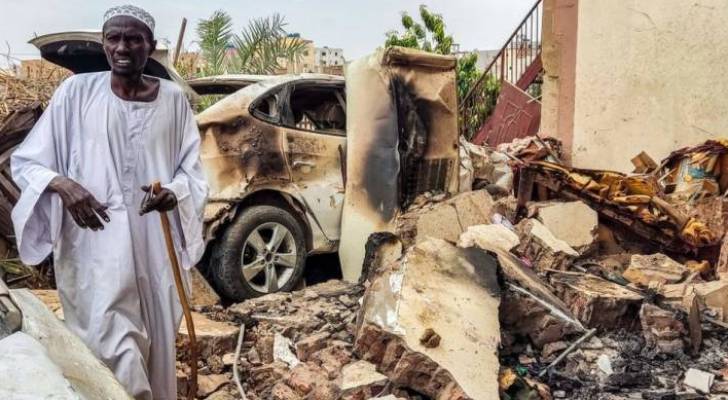War in Sudan leaves deep psychological scars beyond destruction

Roya News
The devastating war that tore through Sudan has left not only massive physical destruction and displaced millions but also inflicted deep psychological wounds that could hinder future reconstruction and stability efforts.
From children traumatized by violence and loss, to mothers who endured grief and assault, and youth whose dreams have been shattered — Sudanese survivors are now battling fear, anxiety, depression, and post-traumatic stress disorder (PTSD). Experts say addressing mental health is now a national necessity, not a luxury.
Displacement and Trauma: Lingering Effects Across Generations
Psychologist Najla Hashim Mohamed from Al-Amal Hospital in Riyadh told SUNA that war and forced displacement are among the leading causes of PTSD, which affects different age groups in varying ways.
Children are the most affected — showing signs of anxiety, difficulty adjusting to new environments, sleep disorders, nightmares, declining school performance, and even aggressive or withdrawn behavior.
Elderly people face family separation, loss of income, and disconnection from their communities, leading to isolation, irritability, and emotional distress.
Youth, meanwhile, often struggle with existential anxiety, depression, and hopelessness as education and job opportunities disappear.
Helping Children Heal
Social activist Hanaa Mousa describes the situation as “a real tragedy that threatens to tear apart Sudan’s social fabric,” adding that children have lost their sense of safety and face daily fear and violence.
Najla Hashim emphasizes the importance of:
Professional supervision: involving psychologists and social workers to create personalized treatment plans.
Daily dialogue: dedicating time for children to express feelings freely.
Art therapy: using drawing and creative activities to process trauma.
Supportive home environments: maintaining calm and avoiding harsh discipline.
Emotional containment: allowing space for children’s emotional outbursts with family support.
Voices from the Ground
Returning residents describe mixed emotions of relief and hardship.
Amina Ahmed Al-Amin, who returned to Khartoum, said: “Even though we lost our homes and farms, being with relatives and neighbors brought some comfort and eased our pain — but the fear still lingers.”
Hassan Abdullah from North Kordofan added: “Returning is better than remaining displaced, but the lack of basic services makes life difficult and mentally exhausting.”
The Road to Recovery
Experts stress that rebuilding Sudan must go beyond restoring buildings — it must heal people.
They call for:
Strengthening security and stability in return areas.
Rebuilding infrastructure, especially schools and hospitals.
Providing psychological and social support programs for all age groups.
Creating job opportunities to ease economic and emotional burdens.
Ultimately, Sudan’s path to recovery is not just about reconstructing what was destroyed — it’s about restoring humanity, rebuilding trust, and erasing the stigma around seeking mental health support. Only then, experts say, can the country truly find lasting peace.
Latest News
-
 Trump says North Korea is “sort of a nuclear power”
Trump says North Korea is “sort of a nuclear power”
-
 Crown Prince attends closing ceremony of Arab Camel Racing Cup
Crown Prince attends closing ceremony of Arab Camel Racing Cup
-
 Putin Directs Drills of Russian Nuclear Forces as His Summit with Trump is Put on Hold
Putin Directs Drills of Russian Nuclear Forces as His Summit with Trump is Put on Hold
-
 Trump aims to meet with China's Xi Jinping during Asia tour
Trump aims to meet with China's Xi Jinping during Asia tour
-
 Jordan, Palestine hold high-level talks on Gaza ceasefire, peace efforts
Jordan, Palestine hold high-level talks on Gaza ceasefire, peace efforts